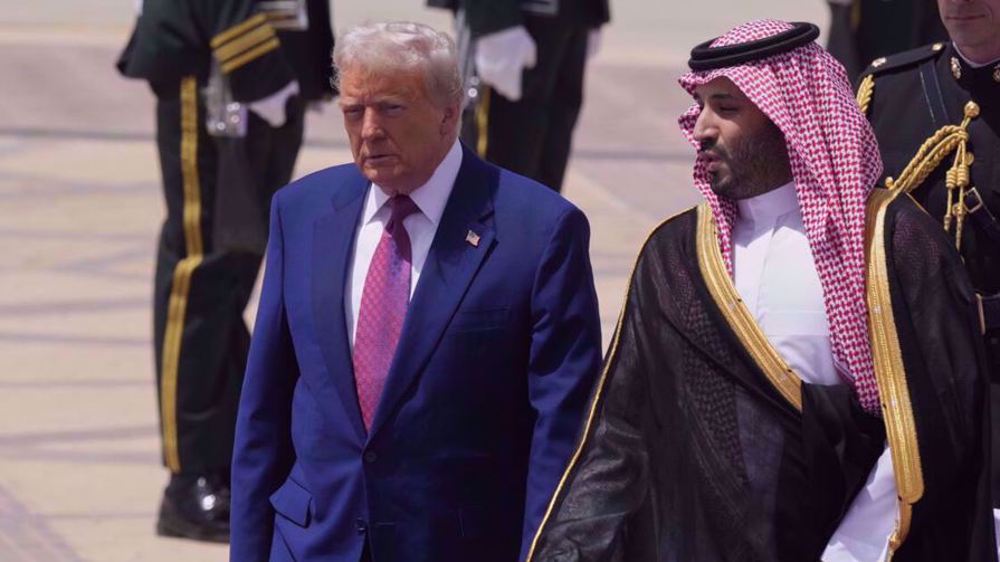Saudi Arabia submits to oil output cut after US threat
OPEC and other large oil producers led by Russia have approved a deal to cut output, after the US threatened to take measures against Saudi Arabia over its crude price war with Moscow.
The deal, agreed late Sunday, is aimed at boosting oil prices that have fallen to a more than 18-year low amid the coronavirus pandemic which has destroyed demand for fuel.
OPEC+, a grouping including OPEC and allies, said it had agreed to cut output by 9.7 million barrels per day (bpd) for May and June.
According to OPEC+ sources, the total global oil cuts could amount to more than 20 million bpd, or 20 percent of global supply, effective May 1.
Total global reductions will include steeper voluntary cuts by some OPEC+ members and strategic stocks purchases by the world's largest consumers.
The signing of the deal had been delayed since Thursday after Mexico refused to agree to its share of the reductions proposed by OPEC+.
OPEC+ sources said non-members Brazil, Canada, Indonesia, Norway and the US would contribute to the cuts.
President Donald Trump hailed the deal which he desperately pushed for because low prices have been wreaking a havoc with US shale industry which involves higher costs.
Trump took to Twitter to thank Russian President Vladimir Putin and Saudi King Salman for the deal. "I just spoke to them... Great deal for all," he wrote.
The US president had threatened Riyadh with oil tariffs and other measures if it did not fix the oil market's problem of oversupply.
A group of 13 US senators from oil producing states had served Saudi Arabia a portentous warning, saying the kingdom would lose its lifeline on Capitol Hill and face anti-Saudi legislation flourishing if it did not agree to a cut.
The senators called Saudi Ambassador to the US Princess Reema Bint Bandar Al Saud last month and said that they would “not only reevaluate, but take actions” regarding relations with the kingdom.
Disagreements between Saudi Arabia and Russia led to the collapse of a meeting of OPEC and its allies — known as OPEC+ — last month aimed at extending oil cuts previously agreed on by OPEC members.
"The American oil industry may have dodged a bullet," the New York Times wrote.
According to the paper, Russia and Saudi Arabia had hoped to undercut American producers but with the Sunday agreement, they retreated from pushing "the gamble".
“Hopefully, the American oil industry has avoided a worst-case scenario,” Amy Myers Jaffe, an energy and Middle East expert at the Council on Foreign Relations, told the paper.
“There still will be bankruptcies, but for the time being, the fears that there would be a wholesale destruction of the industry can now be put aside, because the worst of the price war has passed,” he added.
Shale industry directly and indirectly employs nearly 10 million Americans. The surge in US production in recent years has reduced dependence on foreign oil, and lowered prices at the gas pump for consumers.
The specter of a complete free-fall of oil prices into the single digits and falling demand for oil around the world had driven Trump into the alarm mode.
He is already under fire for his handling of the coronavirus pandemic which put all 50 states under a major disaster declaration for the first time in US history on Saturday.
With all doors seemingly shut, the US turned to Saudi Arabia - its most submissive ally in the Middle East -, browbeating it into an output cut.
American companies now appear to have avoided a collapse, but they are not out of the woods.
The collapse in economic activity caused by the coronavirus has reduced demand by an estimated 30 million to 35 million barrels a day, according to international energy agencies and oil consultants.
"Falling demand for oil around the world may cause American oil exports, which reached more than 3 million barrels a day last year, to dry up almost completely," the Times wrote.
'Powerful strike': IRGC hits US destroyer with ballistic, strategic cruise missiles in Indian Ocean
IRGC: 16th wave of retaliation hit heart of occupied territories; enemy casualties stand at 680
We avenge the innocent until our last breath: Iran's parl. speaker
170 students, teachers martyred in ‘deliberate’ strikes on Iranian schools: Minister
Iran’s air defense systems down six advanced Hermes drones
US defenses overwhelmed by Iran’s drone and missile barrages: WSJ
IRGC says second US THAAD anti-missile unit destroyed
CNN journalists abducted by Israel while reporting on damage from Iranian strikes











 This makes it easy to access the Press TV website
This makes it easy to access the Press TV website